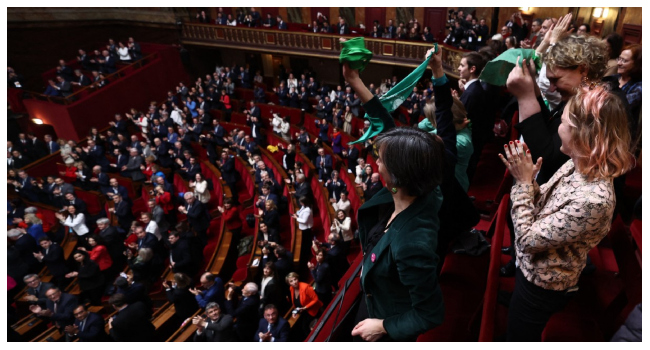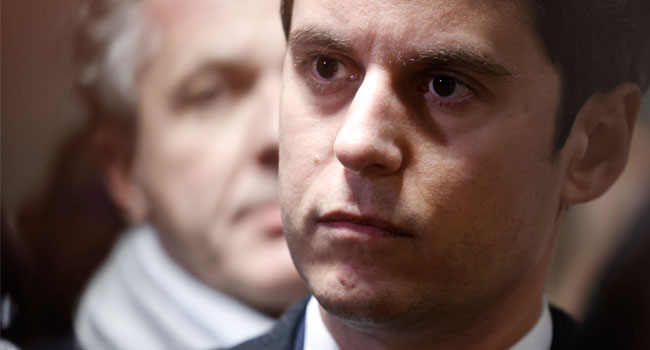
Train drivers, public sector workers and students sought to pile pressure on French President Emmanuel Macron on Wednesday as fresh stoppages on the railways and new protests disrupted travel and university studies.
Students occupied the prestigious Sciences Po university in Paris overnight, the latest campus to be blocked by protesters over higher education reforms which critics see as part of a rollback of public services.
“Sciences Po students against Macron’s dictatorship,” read a banner hung from a window of the university, which has groomed generations of French politicians including 40-year-old Macron himself.
The head of the University of Rouen in northern France also announced that its main campus would be shut until at least the weekend after student protesters blocked buildings.
The student sit-ins, which follow weeks of demonstrations at several universities around France, came as railway workers launched a fourth round of strikes that have led to mass cancellations nation-wide.
Only one in three high-speed TGVs and one in four inter-city trains were running Wednesday with the same number expected the next day.
On Thursday, civil servants, workers in state retirement homes and students have all been urged to demonstrate for the second time in a month after a similar protest on March 22 drew 300,000 people onto the streets, according to police figures.
Unlike last time, the Paris metro faces disruptions on Thursday after unions announced they intended to strike.
Adding to the growing picture of defiance, the head of the energy branch of the hardline CGT union, Sebastien Menesplier, also announced Wednesday that workers were looking at “targeted” power cuts pushing for the creation of a new national energy provider.
Macron booed
Macron, who sees his own credibility as a reformer on the line as he prepares to mark the first anniversary of his presidency on May 14, has insisted he will not back down on his bid to shake up the big-spending public sector.
The ambitious young centrist is also facing resistance in Europe to his plans to reform the European Union where Germany has cooled on some of his plans.
During a trip to the Vosges region in eastern France, he was booed by striking rail workers Wednesday and became embroiled in a heated exchange with an angry trade unionist who accused him of eroding rail workers’ rights.
“We can have differences, but we need to respect each other,” Macron said while again requesting that the strikers stop blocking the country.
A new poll by Ifop-Fiducial suggested 58 percent of French people were unhappy with his presidency, broadly in line with surveys showing his approval rating at around 40 percent.
Rail bill passed
Despite resistance to his agenda, however, there were reasons for Macron to feel optimistic.
The train disruption was less than on previous strike days when only one in seven or eight high-speed trains were running, and the SNCF rail operator said the number of strikers was down sharply to 19.8 percent of the workforce.
On Tuesday, the lower house of parliament voted overwhelmingly in favour of the new rail reform bill which will scrap jobs-for-life and early retirement guarantees for new SNCF hires from January 1, 2020.
The bill sailed through with 454 votes for and 80 against the government’s plans, as expected given that Macron’s Republic on the Move party has a large majority.
“Democracy is calling on the unions to find a solution that moves things forward, not backwards,” Labour Minister Muriel Penicaud told France 2 television.
Since the beginning of April, train drivers and other rail workers have been walking off the job two days out of every five. They have vowed to continue until at least June 28.
Macron is hoping his rail reforms, which now move to the Senate, will be passed quickly, taking the wind out of protesters’ sails.
He is largely backed by public opinion, with 61 percent of respondents to a recent Ifop poll saying they wanted the government to push through the changes.
Students meanwhile are up in arms over changes allowing universities to select candidates for degree courses, calling it a violation of the principle of free education for all.
The various protests are still, however, a far cry from the mass public sector strikes that forced a right-wing government to withdraw pension reforms in 1995, or May 1968 when a revolt by students and workers turned Paris into a battleground.
AFP



